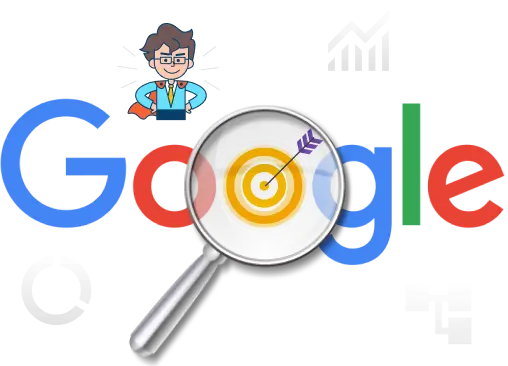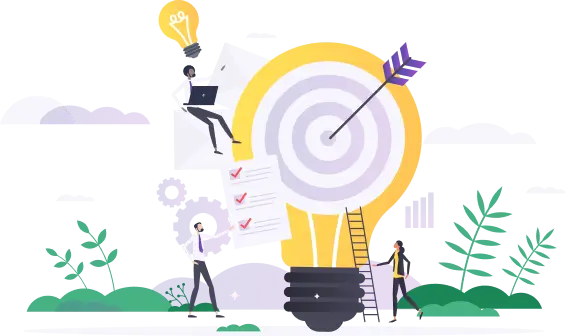- Use Cases
- Google and OKRS
OKRs, the secret of Google’s success
Discover How Strategy Can Add Magic To Focus, Efficiency, Innovation
Start your Journey!
In the late 1990s, Google embarked on its journey to organize the world's information and make it accessible by developing a search engine that aced in speed, accuracy, and relevance of search results. Founders, Larry Page and Sergey Brin, built a culture of innovation, setting the stage for rapid growth and the need for a more scalable approach to goal-setting.
As Google grew, the challenges of scaling its operations became apparent. The turning point came when the company recognized the need for a systematic framework to set objectives, measure progress, and align efforts across the organization. Such recognition was crucial to continue Google’s trajectory of innovation and expansion while ensuring that all employees were working together. It led to embracing practices that helped it evolve from a search engine to a vast ecosystem of products and services.

OKRs helped Google to direct its resources and efforts towards what truly matters, ensuring that every action and initiative contributes to overarching goals. By defining clear objectives and key results, Google can prioritize tasks, projects, and strategies, keeping the entire organization focused on achieving its ambitious targets.

By making objectives and key results accessible to all employees, Google created a culture of openness. Everyone in the company, from interns to executives, understands the direction in which the company is heading and sees how their work contributes to the broader success of the organization.

OKR alignment created a unified direction for the company, streamlining efforts and maximizing efficiency. As everyone has the same objectives in mind with clear key results to measure progress, it propels the company forward.

Google employed OKRs to set ambitious, often termed "stretch" goals that challenge the organization and push the boundaries of what's possible. This encouraged teams to strive for excellence, contributing to their reputation for consistently achieving the extraordinary.
Google's OKR grading system is designed to motivate and challenge its employees, without discouraging them. The system uses a simple scale from 0.0 to 1.0 to grade each Key Result, where 1.0 represents full completion or achievement of the goal.













Failed to make progress

Made some progress but failed to complete the KRs

Successfully delivered





Failed to make progress




Made some progress but failed to complete the KRs





Successfully delivered
However, consistently scoring a 1.0 is not the expectation.
In fact, consistently high scores may indicate that the set objectives are not ambitious enough. The essence of the grading system lies in encouraging employees to set high goals, even if they are not fully achievable within the OKR period.
The grading system serves several purposes:

By setting goals that are difficult to achieve, employees are pushed beyond their comfort zones, delivering innovation-led growth.

Achieving a lower score often provides valuable insights into challenges and areas for improvement.

The OKR cycle allows Google to adapt its strategies and objectives as needed, rather than rigidly sticking to a plan that may no longer be relevant.
OKR framework has enabled Google to set and pursue "moonshot" goals. By encouraging the pursuit of objectives that push the boundaries of what's possible, OKRs have ingrained a culture of bold problem-solving. This also led to defining Google as a company that continually challenges the status quo.


The OKR framework provided a scalable method for aligning and focusing its efforts across increasing teams and projects. This scalability has been crucial in managing Google's rapid expansion, ensuring that despite its size, the company could maintain a cohesive direction and allocate resources.
The OKR framework has enabled the company to quickly adapt to market and technological changes. By establishing a cycle of setting, reviewing, and updating objectives and key results, Google can quickly respond to new insights or emerging opportunities. Such agility ensures that Google remains competitive, even in the fast-paced tech industry.

Companies around the world look to lessons learned by Google from its use of OKRs. These offer valuable insights into how clarity, alignment, and continuous improvement can combine to create an environment where ambitious goals are set and achieved.
After all, Google's journey with OKRs highlights the transformative power of aligning an organization's people and resources behind a shared vision.

Power up your business!
Our experts can configure the best solution for your growth.